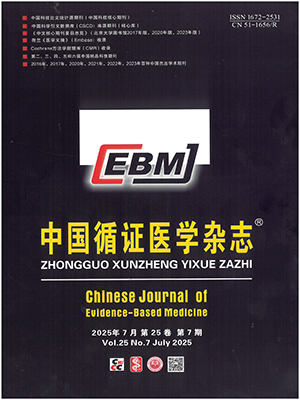| 1. |
国家药监局, 国家中医药局, 国家卫生健康委. 国家医保局关于结束中药配方颗粒试点工作的公告. 2021.
|
| 2. |
韩梅, 夏芸, 李雪梅, 等. 中药配方颗粒临床研究现状、疗效与安全性的概况性评价—以华润三九配方颗粒为例. 中医杂志, 2021, 62(10): 861-867.
|
| 3. |
涂瑶生, 毕晓黎. 中药配方颗粒国际化有关问题的思考. 世界科学技术-中医药现代化, 2007, 9(2): 77-81.
|
| 4. |
邵成雷, 李振鹏, 路杰, 等. 中药配方颗粒研究现状及产业动态. 药学研究, 2022, 41(11): 760-766.
|
| 5. |
林环玉, 伍振峰, 曾丽华, 等. 中药配方颗粒发展现状及产业升级对策分析. 中国医药工业杂志, 2018, 49(8): 1161-1165.
|
| 6. |
赵晓萍. 中药配方颗粒发展趋势的SWOT分析. 中医药管理杂志, 2022, 30(1): 249-250.
|
| 7. |
周卫波, 魏菲菲. 临床医生对中药配方颗粒应用认知初步调查. 中国农村卫生, 2020, 12(8): 21.
|
| 8. |
江丽杰, 胡镜清, 杨响光, 等. 临床医生对中药配方颗粒应用认知初步调查. 中成药, 2011, 33(2): 326-328.
|
| 9. |
国家药品监督管理局药品评价中心, 国家药品不良反应监测中心. 国家药品不良反应监测年度报告(2023年). 2023.
|
| 10. |
吴成凤, 廖嘉宝, 李丹, 等. 中药配方颗粒临床安全性集中监测评价. 中国中药杂志, 2023, 48(15): 4231-4236.
|
| 11. |
叶文怡, 刘姗, 吴建浓. 中药配方颗粒与中药饮片临床应用安全性的Meta分析. 浙江中医杂志, 2022, 57(2): 153-155.
|
| 12. |
杨梦霞. 2018-2020年我院中药配方颗粒使用情况调查. 中医药管理杂志, 2022, 30(4): 103-104.
|
| 13. |
苏开燕, 杨全军, 赵赟, 等. 口服中药致不良反应文献分析及应对策略. 中国药业, 2023, 32(5): 25-28.
|
| 14. |
孙毅东, 张美容, 廖银标, 等. 2011-2014年广东省中医院珠海医院中药饮片和中药颗粒使用情况分析. 中国中医药信息杂志, 2016, 23(3): 114-117.
|
| 15. |
国家药品监督管理局药品审评中心. 关于公开征求ICH《E2A: 临床安全数据的管理: 快速报告的207124075073草稿定义和标准》中文翻译稿意见的通知. 2019.
|
| 16. |
国家药品监督管理局药品审评中心. E2D上市后安全性数据管理(中文版: 征求意见稿): 快速报告的定义和标准. 2019.
|
| 17. |
顾鹏. 中药饮片处方用药剂量及不良反应分析. 临床合理用药杂志, 2021, 14(31): 114-116.
|
| 18. |
曾光. 现代流行病学方法与应用. 北京: 北京医科大学中国协和医科大学联合出版社, 1994.
|
| 19. |
张颖, 季聪华, 李秋爽, 等. 中医临床实践指南制修订中德尔菲法的统计分析方法. 中华中医药杂志, 2018, 33(1): 249-251.
|
| 20. |
王春枝, 斯琴. 德尔菲法中的数据统计处理方法及其应用研究. 内蒙古财经学院学报(综合版), 2011, 9(4): 92-96.
|
| 21. |
ICH harmonised tripartite guideline clinical safety data management: definitions and standards for expedited reporting E2A. International conference on harmonisation of technical requirements for registration of pharmaceuticals for human use, 1994.
|
| 22. |
ICH harmonised tripartite guideline post-approval safety data management: definitions and standards for expedited reporting E2D. International conference on harmonisation of technical requirements for registration of pharmaceuticals for human use, 2003.
|
| 23. |
舒露艳, 吕丝丝, 余丽云. 2021-2022年我院骨科中药配方颗粒使用与不良反应分析. 中医药管理杂志, 2023, 31(8): 120-122.
|
| 24. |
王键. 中医基础理论. 北京: 中国中医药出版社, 2018.
|
| 25. |
CDISC. Standards.
|




